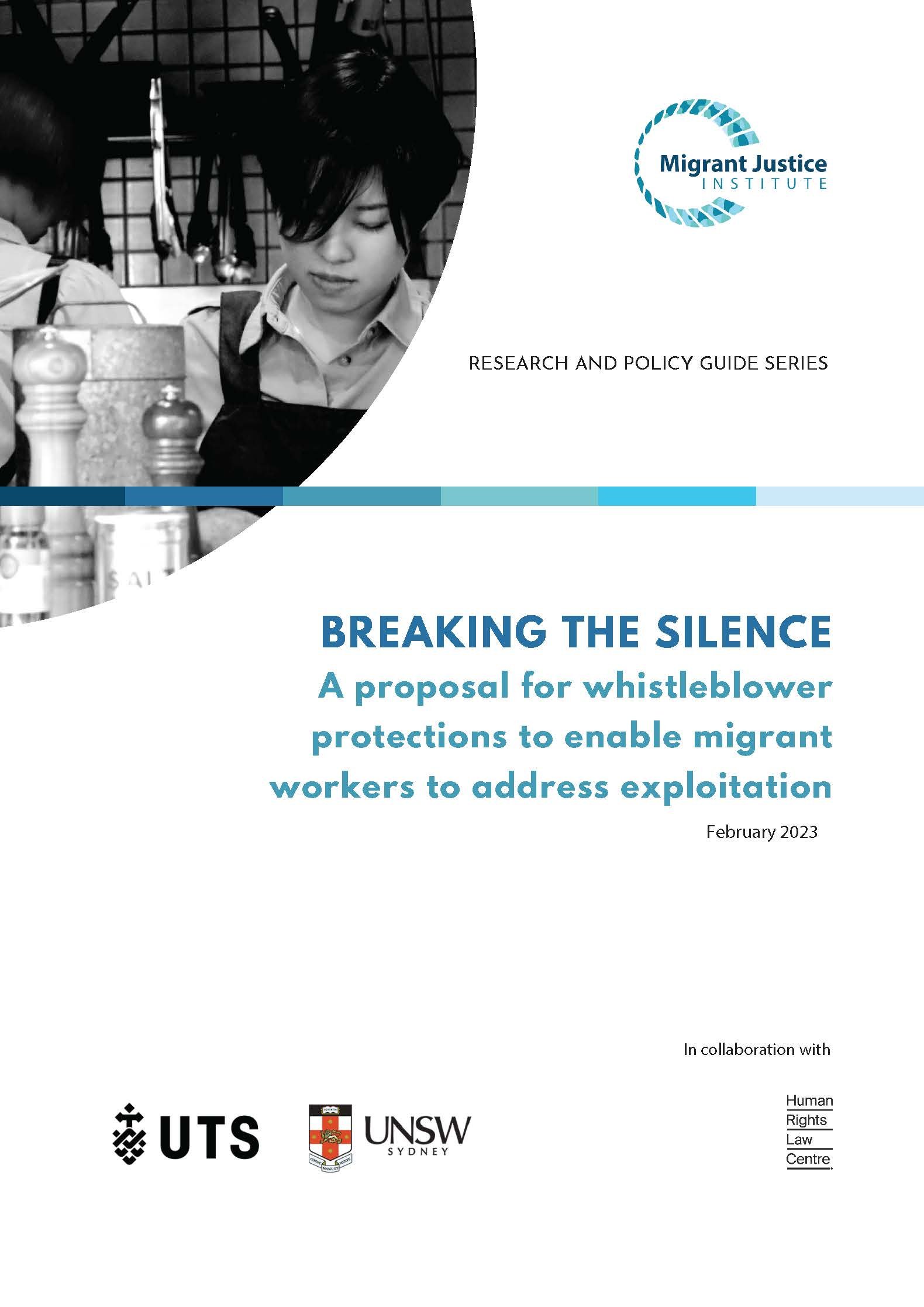A national coalition of over 40 legal service providers, unions, ethnic community peak bodies, churches, and national organisations is calling on Minister for Home Affairs Clare O’Neil to urgently bring widespread migrant worker exploitation out of the shadows.
Led by the Migrant Justice Institute and Human Rights Law Centre, the Breaking the Silence proposal urges the Federal government to establish whistleblower protections that would enable migrant workers to report exploitation without risking their visa.
The Migrant Justice Institute has surveyed over 15,000 migrant workers over the past 5 years. These studies consistently found that around three quarters of migrant workers earned below the casual minimum wage in Australia, and a quarter earned less than half that. Nine in 10 underpaid workers suffered in silence and took no action.
Migrant workers generally endure exploitation in silence for fear of jeopardising their visa or ability to stay in Australia. The proposed reforms in Breaking the Silence include:
A protection against visa cancellation for exploited migrant workers who take action against their employer and have breached their work conditions;
A short-term visa to allow exploited migrant workers to remain in Australia and pursue a claim against their employers, with visa security and the ability to work.
These reforms will begin to break the entrenched cycle of exploitation and expand government’s enforcement of labour law by:
Changing employer behaviour by increasing the likelihood that exploitation will come to light and they will be held to account;
Substantially expanding enforcement beyond the limited capacity of government agencies by enabling more employment lawyers and unions to pursue claims on behalf of migrant workers who would not otherwise come forward;
Increasing detection of exploitation among federal and state government agencies byrequiring reporting of claims to those regulators;
Increasing business’ ability to detect and address wage theft and modern slavery in supplychains by enabling migrant workers to more safely report it, while not creating any new redtape for businesses that do the right thing and comply with employment laws;
Encouraging migrants to join unions and assisting unions to organise and represent migrantworkers; and
Creating new incentives for migrant workers to report forms of exploitation not currentlycovered by the Assurance Protocol, including workplace health and safety, sexualharassment and discrimination.


